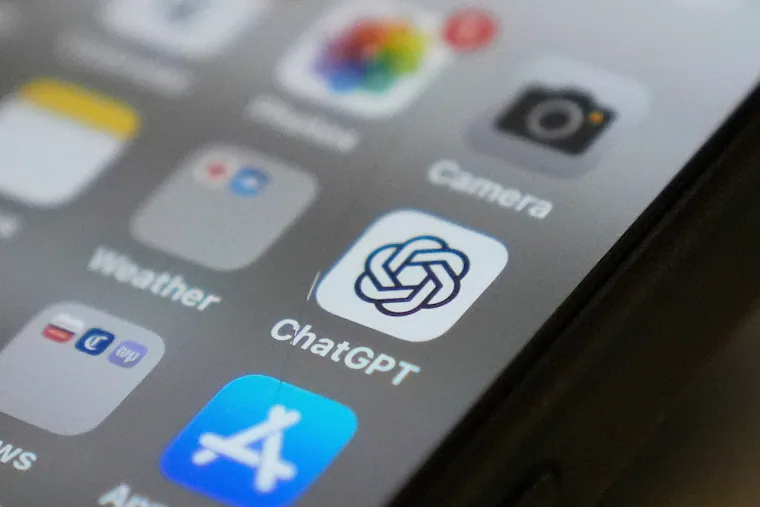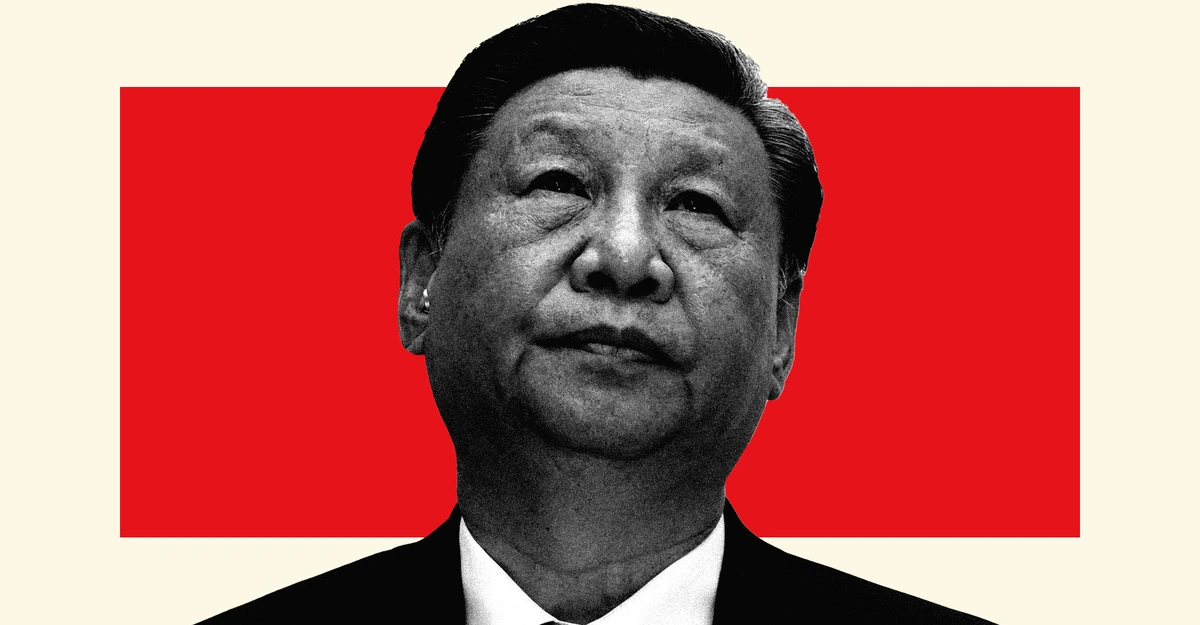Copyright The Philadelphia Inquirer

Stop me if you’ve heard this one before, but today is Election Day, and it’s more important than ever that you arise from the couch or wherever to vote. Off-year election? Ha! It’s not just that Pennsylvania voters will decide the future of the state Supreme Court, or that the governor’s office is on the ballot in New Jersey in what looks like a very close race. It’s also that in a moment of rising autocracy, voting is an act of resistance. See you at the polls. If someone forwarded you this email, sign up for free here. AI jobs bloodbath makes the case for universal basic income Regular readers already know about my strange obsession with the one-hit-wonder of my 10-year-old summer, 1969’s “In the Year 2525″ by Zager and Evans. The song rode the top of Billboard’s chart for six hot, humid weeks with a frightening and somewhat dystopian vision of humankind’s next 8,031 years. On the record, technology is what slowly turns people into vestigial organs, with procreation now picking babies “from the bottom of a long glass tube.” They also predict that “your legs got nothing to do/Some machine’s doing that for you,” not to mention that by 3535 “everything you think, do, and say/Is in the pill you took today.” The song was No. 1 when Neil Armstrong and Buzz Aldrin became the first people to walk on the moon, and it was the space race (computers were becoming a thing, but not yet for the masses) that had me thinking as a young grade-schooler that I might live long enough to see some machine doing it for me. Imagine, life freed from the yoke of work. I can’t recall if I wondered how we’d all get paid. In the year 2025, I do worry about this, a lot. Artificial intelligence, or AI, is already bidding to replace everything you think, do, and say — 1,510 years ahead of Zager and Evans’ schedule. And the two Nebraska musicians were right that not needing to show up for work is indeed dystopian when no one is paying for you to eat, or have a roof over your head. Last week brought a bloodbath of layoffs at some of the major corporations most poised to replace human beings who once answered phones or drove trucks or wrote software code with AI-powered computers. The delivery giant UPS has dumped 10% of its workforce — a whopping 48,000 employees — as it prepares for a future of AI-driven logistics. Likewise, the preeminent online retailer Amazon axed 14,000 mostly white-collar workers as it looks to up its AI game, and other major employers like Target also announced significant jobs cuts last week. Experts debated how many of the cuts are directly attributable to AI, but clearly U.S corporations plan to do more with less, a lot less. “We’re looking at a world where we have levels of unemployment we [have] never seen before,” the University of Louisville computer science and AI author Roman Yampolskiy predicted recently on a podcast, joining the most pessimistic. And Yampolskiy’s forecast of 99% unemployment in five years does seem quite extreme, especially when attempts to replace what I allegedly do — journalism — with computers have so far been wildly inaccurate, That said, we’re already seeing a world where more jobs are being replaced by computer programs or robots than are being created. The cranky contrarians note that every new technology from the cotton gin to the internet destroyed jobs before creating lots of new ones, but we’re hitting a wall of diminishing returns. If AI-driven computers are programming the AI revolution instead of humans, the new jobs will be...what? Late-stage capitalism has been bad enough. The soaring stock market — almost entirely fueled by investors’ tulip-level mania over the prospects for AI — is papering over the fact that increasingly consumer spending in the United States is driven by the top 10% of earners. Meanwhile, the bottom 90% can’t afford McDonald’s, let alone a summer vacation. So what will happen when AI triggers end-stage capitalism? For the first time in a couple of years, I’ve found myself thinking about Andrew Yang. In 2019, Yang won 15 minutes of fame as an out-of-leftfield Democratic presidential candidate, in the beginning of a long strange trip that’s also included a failed bid for New York City mayor and a (so far) failed bid to launch a third major political party. At the zenith of that 2019-20 primary season, I profiled Yang for our mutual alma mater’s alumni magazine, traveling to D.C. to watch him hold a rally near the Lincoln Memorial and promote his core idea that he called a ”Freedom Dividend” — the government sending every adult citizen a check for $1,000, every month. Universal basic income, or UBI, would free up Americans to write poetry, pursue acting, or simply survive with Silicon Valley coming for their jobs. “In the old days you’d say in order to optimize my bottom line I’d hire the best people and treat them well,” Yang told me six years ago about U.S. capitalism, “but increasingly, optimizing my bottom line means getting rid of people as fast as possible.” I had my doubts in 2019, and I can’t say I’m 100% sold now. The problem seems not to be the core concept, but the scale. The $1,000-a-month check would be great for pulling working class families out of poverty (as happened ever so briefly with child tax credits under Joe Biden) or helping would-be rock stars or sculptors find themselves, but what will $12,000-a-year do when you’ve been replaced by a robot? Still, Yang was largely speaking for his friends in Silicon Valley who understood the coming calamity better than most. Asked about UBI back in 2017, Elon Musk said, “I don’t think we’re going to have a choice.” Sam Altman, the OpenAI founder whose firm is behind ChatGPT, agrees. “I think society will very quickly say, ‘OK, we’ve got to have some new economic model where we share that and distribute that to people,’” Altman said this summer. The problem is that in order to pay for even Andrew Yang-level UBI, the cost would be more than $3 trillion, which is nearly the entire current federal budget. The only possible way to finance this — which is essentially what Yang proposed in 2019 — would be a massive wealth tax on the Silicon Valley investors becoming billionaires in the roaring 2020s on the promised hype of AI. Yet somehow, the Altmans and Musks of the world who claim to support UBI haven’t volunteered to pay for it. No, the reality is that these titans of technology donated millions toward the election of a pro-AI (and pro-cryptocurrency, an overlapping obsession) authoritarian president in Donald Trump, who instead lowered their taxes with what Trump called his Big Beautiful Bill. In recent days, AI and crypto billionaires have shown their gratitude by ponying up millions more to pay for the president’s $350 million gilded ballroom project. On Halloween last Friday, the kind of people who are shopping for yachts while middle-class retailer Target is slowly imploding celebrated their good fortune at the president’s Mar-a-Lago club in Palm Beach with a gaudy, feathery Great Gatsby-themed party. They worshipped obscene opulence and a Wall Street bubble with the same cluelessness that propped up Jay Gatsby and his careless friends Tom and Daisy Buchanan back in the 1922 of the novel, blissfully unaware that Black Tuesday is laying in wait. Unless the government figures out how to make sure you don’t starve when AI comes for your job, the social upheavals of the next Black Tuesday won’t wait for the year 2525. Yo, do this! Ask me anything Question: Why is ICE getting away with such brutal violence? Throwing people to the ground, smashing car windows, ramming cars, etc. Does other law enforcement do this on a regular basis? — Pax Linson (@paxll.bsky.social) via Bluesky Answer: Thanks for asking this, Pax, as it hits on something I was hoping to address this week. On Saturday night, the Los Angeles Dodgers won their second straight championship in a thrilling Game 7 of the World Series. Even before the final pitch, Los Angeles police began rampaging against revelers in the streets — swinging batons from atop horses, tear-gassing large crowds, and pushing fans to the ground. Not ICE. Not the Border Patrol. The LAPD, a municipal police agency, at least nominally under the control of a liberal Democratic mayor, Karen Bass. The reality is that the over-the-top abuses by masked and unbadged federal officers are just taking the violent, sick culture of policing in America to the extreme. Until we can somehow fundamentally change the culture of policing in America — away from warrior cops, toward community safety — the beatings will continue. What you’re saying about... A good sign of how much New York City’s Zohran Mamdani has electrified 2025’s politics is that my question about the Democratic mayoral nominee and the future of his party drew a near-record response from readers. Most of you share my view that Mamdani’s youth, charisma, and fresh policy ideas around affordability are just what the moribund Democrats need. Wrote Elisa Mills: “The Democrats have been way too submissive and status quo — toeing the central line — for too long, so as not to offend the wealthier wing of the party.” One naysayer was Brian Sullivan, who said, “The Democratic Party would be better served to stand up to MAGA by a more centrist candidate.” Tonight’s results should tell us a lot. 📮 This week’s question: I’m going to take a big risk here and ask for your views on something that hasn’t happened yet: Tuesday’s election, and what it all means. Do you see the results as a win for the Democrats’ leftist flank or its centrist wing, or did we see another MAGA surprise? Do you feel hope, or despair? Please email me your answer and put the exact phrase “2025 election” in the subject line. Backstory on Teen Vogue and journalism’s loss TV’s Murphy Brown was always a popular sit-com among journalists, and not just because there’s no better vehicle than Candice Bergen to glamorize a fairly unglamorous profession. The 1990s original version both spoofed and celebrated the role of a free press in America, and that point was even more clear when the show was briefly revived in 2018 during Donald Trump’s first term. Said showrunner Diane English: “The First Amendment and free press is under attack like I’ve never seen before…and these guys are the press, so we deal with that a lot.” So it makes sense that Murphy Brown’s daughter — OK, Bergen’s daughter, Chloe Malle — became a high-profile journalist, replacing the legendary Anna Wintour as editorial director of Vogue. In a tragic irony, one of Malle’s first major moves at Conde Nast’s iconic fashion magazine arguably aided and abetted 2025’s ongoing war on press freedom, by neutering the remarkably independent voice that was Teen Vogue and reportedly laying off its incisively progressive political writers. In the fall of 2016, when much of America was shell-shocked by Donald Trump’s election, Teen Vogue won new readers with a youthful political irreverence that eluded the mainstream media. Its writers introduced the term “gaslighting” to the U.S. mainstream political lexicon, and offered pull-no-punches coverage of Trump’s stepped-up immigration enforcement and 2020’s Black Lives Matter protests. In its story announcing Monday that Teen Vogue will be merged into Vogue.com and that its top editor has been ousted, Vogue Business reported that what remains of the brand will be focused on topics such as career development and leadership — with zero mention of politics. Meanwhile, staffers were reporting on social media that they and several colleagues who’d formed the rebellious soul of Teen Vogue had also lost their jobs. The publication’s prominent transgender journalist (and Philly native) Lex McMenamin posted that “certainly more to come from me when the dust has settled more, but to my knowledge, after today, there will be no politics staffers at Teen Vogue.” The layoffs reportedly included Teen Vogue’s two Black women staffers. What seemed most chilling about the Teen Vogue bloodbath was that there was no statement — not even on background — suggesting that the moves were made because aggressive and often negative coverage of our authoritarian government is no longer, dare I say it, in vogue. No, the current dystopian zeitgeist is so embedded in the gutted-out remains of the mainstream media that it now goes unspoken that we’re just not doing that sort of thing anymore. Increasingly, the barely breathing spirt of the First Amendment survives in only a handful of smaller outlets, like WIRED or Rolling Stone, and in the growing array of journalists publishing independent newsletters instead of selling out. Please support them if you can. The Teen Vogue debacle could have been the subject of a powerful Murphy Brown monologue, but that would be so 1990s. What I wrote around this date in 2020 I’m going to cheat again with this feature because the weirdness of election season meant no columns or Attytood blog posts on Nov. 4 except for 2020 and it was a muddled, middle-of-the-night too-soon assessment of that year’s presidential contest, best buried. My piece the following day — Nov. 5, 2020 — is stronger and still cynical despite Joe Biden’s impending victory, because after four insane years Donald Trump had actually increased his vote total. I wrote: “The bottom line is that close to 75 million Americans aren’t revulsed by Donald Trump, but they remain highly revulsed by the people who hate him — those smug elite ‘pointy-headed’ liberals in the media or academia or Hollywood looking down on Trump ... and, thus, on them.” Read the rest: “Even if Biden wins, Dems, media — and all of us — have a lot to answer for, and to fix." Recommended Inquirer reading



